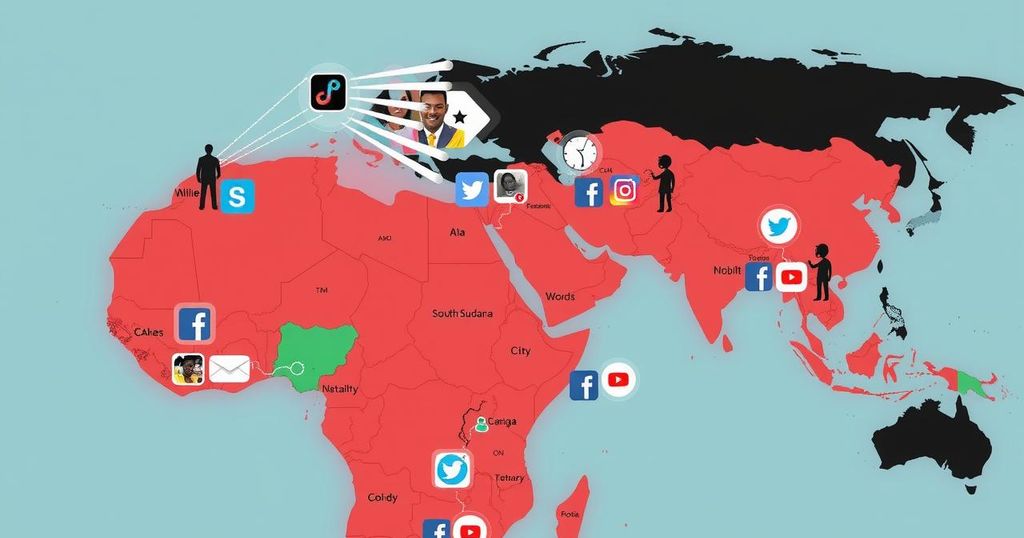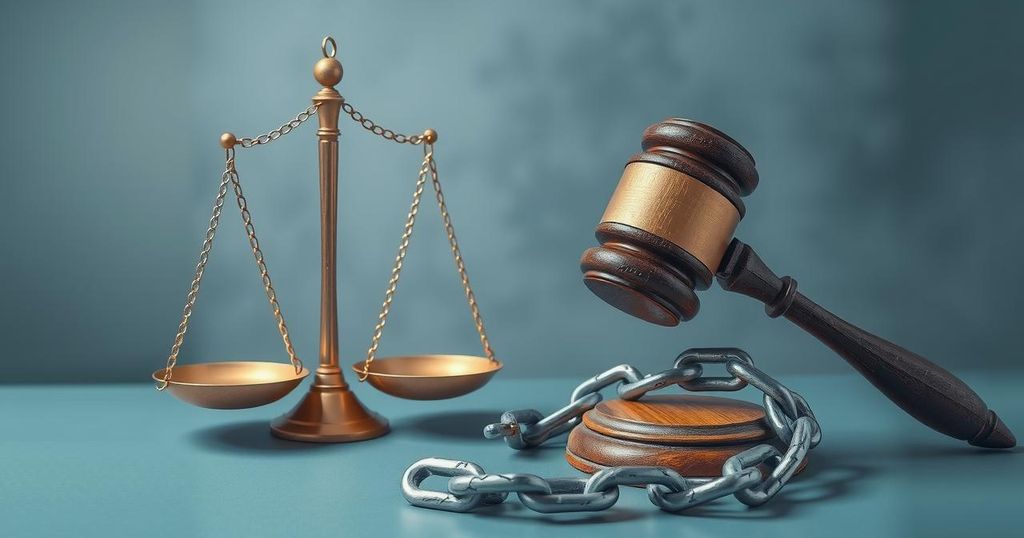The Role of Social Media in Political Confusion and Peace Negotiations in South Sudan
Social media significantly contributes to political turmoil in South Sudan, where misinformation threatens peace efforts. Recent tensions between Minister Lomuro and Radio Tamazuj exemplify this issue. With a history of conflict driven by false narratives, stakeholders must focus on promoting accurate information to facilitate peace negotiations in a volatile environment.
Social media has increasingly amplified political discord in South Sudan, necessitating that South Sudanese refrain from disseminating misinformation to foster peace. Recent tensions between Radio Tamazuj and Minister of Cabinet Affairs Martin Lomuro illustrate how social media can exacerbate the nation’s political climate, particularly amid the ongoing Tumaini peace negotiations in Nairobi. Rumors circulated on social media suggested that Minister Lomuro had been expelled from the negotiations due to his unfavorable stance towards peace discussions with non-signatories of the 2018 accord. Although the mediators lacked authority to dismiss any government representative, the gravity of these unfounded claims forced the minister to issue a public refutation.
In a press conference, Minister Lomuro accused Radio Tamazuj and opposition factions of promoting false narratives concerning his involvement in peace talks. Notably, he did not confirm whether Radio Tamazuj had, in fact, broadcasted such allegations. This situation reflects the fragile relationship between independent media and government officials, the manipulation of social media by those with ulterior motives to hinder peace endeavors, and the potential deterioration of trust between the media and political figures in South Sudan.
Some individuals may perceive this situation as trivial; however, given the volatile political landscape in South Sudan, it warrants serious attention. There are forces actively working against the progress of the peace process. It is imperative to confront those individuals and to counter the misinformation proliferating on social media that may lead to further complications in the country. Historically, social media has precipitated various conflicts within South Sudan, resulting in numerous casualties. For instance, the breakdown of the initial peace agreement in July 2016 can be traced back to the rampant spread of misinformation. When violence erupted in Juba during this period, it not only derailed the peace process but necessitated subsequent negotiations, leaving the current revitalized peace agreement unfulfilled.
The initial spark of violence in July 2016 remains contentious, with conflicting narratives clouding the truth. One account attributes the outbreak to a false post on Facebook allegedly disseminated by the spokesman of former First Vice President Riek Machar, claiming that he was detained by government forces. This claim allegedly incited tensions, while another version cites a violent incident at a security checkpoint as the catalyst. Regardless of the true trigger, it is evident that malicious intent behind social media messages can disrupt the peace; innocent civilians inevitably suffer from the ensuing chaos.
The recent conflict between Radio Tamazuj and Minister Lomuro poses a threat to the ongoing negotiations in Nairobi. It is crucial for all parties involved to focus on resolving their differences peacefully and prioritize delivering lasting peace to the South Sudanese populace rather than succumbing to the distractions of social media misinformation.
The impact of social media on the political landscape of South Sudan has garnered significant attention, particularly as it pertains to the dissemination of misinformation. Such false narratives can have dire implications for peace processes and result in heightened tensions among differing political factions. The recent incident involving Minister of Cabinet Affairs Martin Lomuro highlights the urgent need for transparency and accountability in media reporting, especially in a fragile political context marked by a history of conflict fueled by rumors and misinformation.
In summary, social media plays a critical role in exacerbating political confusion in South Sudan. Misinformation can lead to severe consequences, including violence and a setback in peace negotiations. Stakeholders in the peace process must prioritize constructive dialogue and mutual understanding while remaining vigilant against harmful narratives that threaten peace and stability in the region. The responsibility lies with both the media and political leaders to create an environment conducive to peace.
Original Source: www.radiotamazuj.org




Post Comment